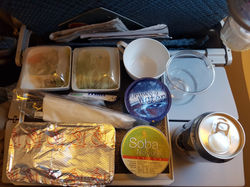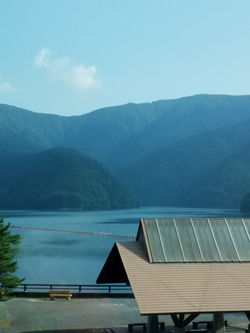

Japan 2019 (Kanto region)
I went to Japan (Kanto region) from late July to early August 2019 for around seven days.
I recall visiting both the city areas and the rural areas of Tokyo. My general impression of Tokyo's city areas is that they tend to be very congested, especially in areas like Shinjuku and Shibuya. I recall boarding the trains at Shinjuku station, and it was packed to the brim with people! Likewise, the famous Shibuya crossing was filled with locals and tourists trying to get to the other end of the walkway. The pace of life seems to be very fast over here.
Compared to the rural areas of Tokyo, this was a stark contrast. The main difference was that rural Tokyo felt so calm and peaceful. Nobody was rushing to go anywhere. The locals took long strolls by the nearby rivers and hills. I greatly appreciated the natural sceneries which I saw in rural Tokyo. Coming from a fast-paced city like Singapore, I sometimes wish to have a slower pace of life, just like the locals I saw back there. When I was there, I saw many local families bringing their children to the nearby river for a nice cooling dip in the icy cold water and having a hearty BBQ meal afterward. Wouldn't it be nice if we could do that in Singapore once in a while as well?
The modern conveniences of the city areas of Tokyo were something I valued. Whenever I felt hungry, I knew that I would be able to purchase ready-to-eat food easily. But that could not be said for the more rural areas of Tokyo - when I was there, I didn't find any establishments nearby selling ready-to-eat food. In the rural area of Okutama, there was only a tiny but modern supermarket selling daily essentials and drinks.
Both city areas and rural areas have their pros and cons. If it's you, which area of Tokyo would you rather live in? Have a look at my photos, and think about it :)
Anyway, I intend to visit Tokyo more in the future - in fact, I want to see and climb Mount Fuji one day :D
 |  |  |
|---|---|---|
 |  |  |
 |  |  |
 |  |  |
 |  |  |
 |  |  |
 |  |  |
 |  |  |
 |  |  |
 |  |  |
 |  |  |
 |  |  |
 |  |  |
 |  |  |
 |  |  |
 |  |  |
 |  |  |
 |  |  |
 |  |  |
 |  |  |
 |  |  |
 |  |  |
 |  |  |
 |  |